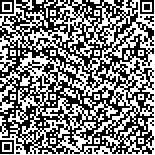| 本文已被:浏览 607次 下载 358次 |

码上扫一扫! |
| 干酪乳杆菌对雏鸡空肠黏膜结构及炎性因子水平的影响 |
|
王秋珍1,邓自腾1,刘雪连2,闫雪2,宋维平2,韩德平1,马云飞1*
|
|
|
| (1.中国农业大学 动物医学院, 北京 100193;2.北京大北农科技集团股份有限公司 饲用微生物工程国家重点实验室, 北京 100192) |
|
| 摘要: |
| 为研究干酪乳杆菌对沙门菌感染雏鸡空肠黏膜上皮损伤的保护作用,以450只1日龄SPF健康雏鸡为研究对象,随机分成正常对照组、沙门菌组、干酪乳杆菌组、预防组、治疗组和预防治疗组,每组5个重复,每个重复15只鸡。分别用HE染色和酶联免疫吸附(ELISA)法检测雏鸡肠道黏膜结构变化和肠道中炎性因子表达量的变化情况。结果显示:1)与沙门菌组相比,饲喂干酪乳杆菌预防使肠绒毛上皮柱状细胞排列整齐,维持肠绒毛的完整性。2)饲喂干酪乳杆菌使得沙门菌感染组的促炎因子IL-17、IFN-γ和TNF-α的表达量显著减少(P<0.05),而抗炎因子IL-10的表达量显著增多(P<0.05)。综上,饲喂干酪乳杆菌能保护雏鸡肠道健康,减轻沙门菌对雏鸡空肠黏膜的损害,加强肠道的免疫功能。本研究为干酪乳杆菌预防畜禽沙门菌感染并应用于生产实践提供理论依据。 |
| 关键词: 干酪乳杆菌 沙门菌 雏鸡 炎性因子 空肠黏膜 |
| DOI:10.11841/j.issn.1007-4333.2021.11.14 |
| 投稿时间:2021-02-26 |
| 基金项目:国家自然科学基金面上项目(31772686);国家重点研发计划项目(2018YFD0500606) |
|
| Effects of Lactobacillus casei on the structure of jejunal mucosa and the level of inflammatory factors in chicks |
|
WANG Qiuzhen1,DENG Ziteng1,LIU Xuelian2,YAN Xue2,SONG Weiping2,HAN Deping1,MA Yunfei1*
|
| (1.College of Veterinary Medicine, China Agricultural University, Beijing 100193, China;2.State Key Laboratory of Direct-Fed Microbial Engineering, Beijing DaBeiNong Science and Technology Group Co., Ltd.(DBN), Beijing 100192, China) |
| Abstract: |
| In order to study the protective effect of Lactobacillus casei on jejunal mucosal epithelial injury in Salmonella infected chicks, 450 SPF healthy chicks just hatched were randomly divided into normal control group, Salmonella group, Lactobacillus casei group, prevention group, treatment group and preventive treatment group, with 5 replicate in each group and 15 chickens in each replicate. The changes of intestinal mucosal structure and the expression of inflammatory factors in chicks were detected by HE staining and ELISA. The results showed that: 1)Compared with the Salmonella group, feeding L. casei could make the columnar cells of intestinal villi arranged orderly and prevent maintain the integrity of intestinal villi. 2)After feeding L. casei, the levels of IL-17, IFN-γ and TNF-α were significantly decreased(P<0. 05), and the expression of anti-inflammatory factor IL-10 was significantly higher than that in Salmonella infection group(P<0. 05). In conclusion, feeding L. casei could protect the intestinal health of chickens, reduce the damage of Salmonella on jejunal mucosa and strengthen the immune function of intestinal tract. This study provides a theoretical basis for the application of L. casei in the prevention of Salmonella infection in livestock and poultry. |
| Key words: Lactobacillus casei Salmonella pullorum chick inflammatory factors jejunal mucosa |